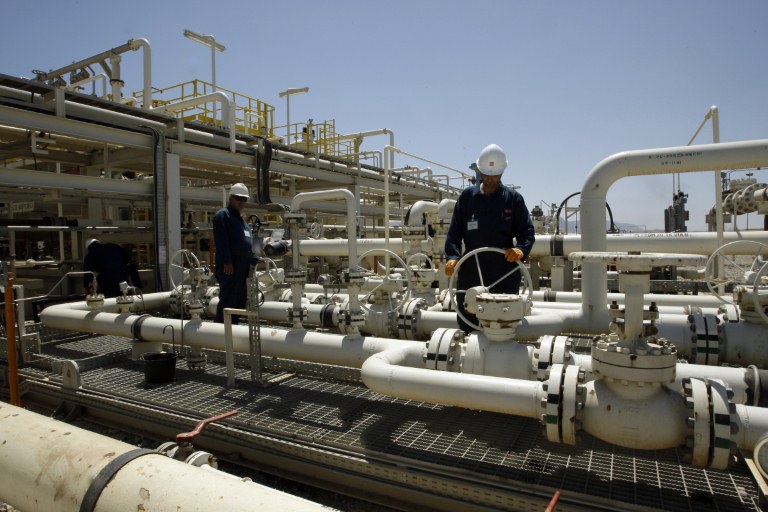The European Investment Bank (EIB) has recently announced a comprehensive response to the coronavirus (COVID-19) pandemic outside the EU that will provide up to €5.2bn in the coming months.
The financing is an immediate fast-tracked support package designed to help sustain jobs and livelihoods in the sectors most threatened by the economic and social impact of the coronavirus. Daily News Egypt interviewed EIB Vice President Dario Scannapiecoo to better understand the how the Mediterranean region – particularly Egypt – will benefit from this finance.
In response to the COVID-19 pandemic, how will the EIB help Mediterranean countries?
The EIB is a key player in “Team Europe” led by the European Commission (EC) to provide and coordinate EU support to countries outside the union. Our approach to the COVID-19 response is based on two pillars: to strengthen health preparedness and resilience; and to support the real economy and the liquidity of public entities; banks; corporates; and micro, small, and medium enterprises (MSMEs), to ensure the resilience of investments, businesses, and populations.
The countries of the Southern Neighbourhood vary in terms of their economic situation and requirements. We are in continuous discussions with our counterparts in the Mashreq and Maghreb to assess their needs and prepare tailor-made responses. EIB’s overall new financing in support of the COVID-19 response in the Southern Neighbourhood is expected to reach up to €2bn in 2020, of which at least €1.5bn would be dedicated to support small and medium enterprises, and €0.5bn to the public sector. In addition, the EIB is making all efforts to accelerate disbursements on existing operations where possible.
What impact does the COVID-19 have on the Mediterranean region?
The Covid-19 pandemic is a truly unprecedented shock to the world economy in terms of its unexpected magnitude, global spread, and interlinked demand and supply effects. Its epicentre has moved from China to Europe and the US. The virus’ tragic human and economic toll will also impact the EU’s Southern Mediterranean and Partner Countries as in the EU.
Economic activity will slow down because of lockdowns, travel restrictions and border closures, as well as higher rates of morbidity and mortality. Demand is plunging, production is being disrupted and investment plans are being put on hold. Lockdowns are hurting labour-intense service sectors, and affecting in particular countries where unemployment is already high. In addition, a number of economies will be hit by a decline in tourism and a reduction in remittances.
How should governments intervene to face these challenges?
There have been prompt responses to COVID-19 economic impact in the region. A number of countries have cut interest rates, and a number of central banks are providing payment holidays on facilities to commercial banks, introducing new liquidity facilities, or extending eligibility for existing facilities to critical sectors, such as healthcare. Some are mandating or “requesting” commercial banks to provide payment holidays to their clients, particularly the poor and MSMEs.
Despite these interventions, for many of these countries the trade-off between containment measures to stop the virus from spreading and the economic contraction that these measures will bring, poses a daunting challenge in light of already high public debt levels, and will require as much support as possible from the international community.
Countries have to cope with three main challenges related to COVID-19: an urgent need for medical and protective equipment and other relevant supplies, a medium to long-term need to reinforce their healthcare systems including hospital infrastructure, and an overall economic downturn limiting already narrow fiscal space and slowing future growth.
How about Egypt’s Covid-19 response?
The Egyptian government has enacted a prompt response to COVID-19 and introduced together with the Central Bank of Egypt a number of measures to respond to the COVID-19 economic impact.
The EIB is part of a wide discussion led by the Ministry of International Cooperation with other international financial institutions, UN agencies, and development partners to establish how best the bank can support Egypt with new financing and existing credit lines, both in public and private sectors.
In the public sector, the EIB has for example offered additional funding for medical supplies and equipment needed according to the national crisis response plans. In addition, the bank continues to work on important public sector transport, energy, and water/wastewater projects, which remain crucial to ensure economic recovery and employment after the crisis.
In the private sector, the intervention of the EIB is focused on supporting corporates, in particular MSMEs whereby the bank’s long-standing and successful partnership with the local banking sector will be built on to maximum effect. Funding and risk-sharing instruments are designed to enable the banks to continue and adapt their lending to the needs of the MSMEs in these times of crisis.




